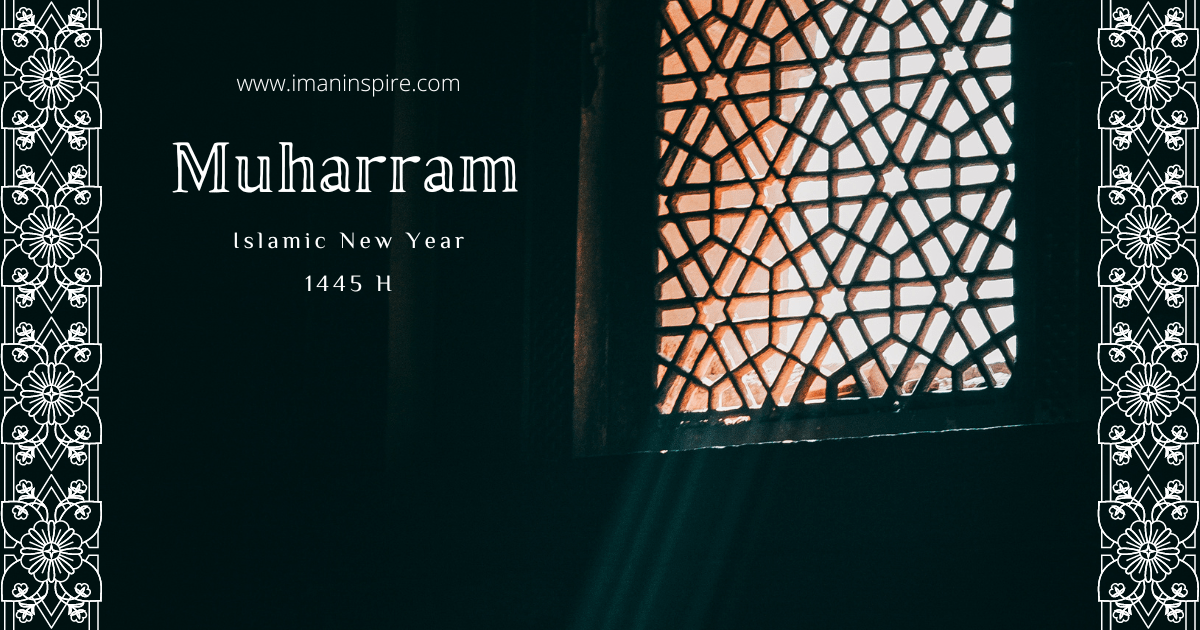
Introduction Moharram
Moharram, the first month of the Islamic calendar, holds profound significance for Muslims worldwide. It is a time of reflection, mourning, and spiritual renewal. The events that transpired during this month, particularly the Battle of Karbala, have left an indelible mark on Islamic history and tradition. This blog explores the spiritual journey of Moharram, its historical context, and the various practices observed by Muslims.
Understanding The Islamic Calendar and Moharram
The Islamic calendar, also known as the Hijri calendar, is a lunar calendar consisting of 12 months. Moharram is the first month and is considered one of the four sacred months in Islam. Unlike the Gregorian calendar, the Hijri calendar is based on the cycles of the moon, making the Islamic year shorter by about 10 to 12 days. This lunar system brings a unique rhythm to Islamic practices and observances, with Moharram setting the tone for the rest of the year. The month is particularly revered because of its association with significant historical and spiritual events, most notably the martyrdom of Imam Hussein, the grandson of Prophet Muhammad.
Historical Significance of Moharram (The Battle of Karbala)
The Battle of Karbala is a pivotal event in Islamic history that took place on the 10th of Moharram, known as Ashura, in 680 AD. This tragic battle saw Imam Hussein, the grandson of Prophet Muhammad, and his followers make a stand against the oppressive rule of Yazid I. Despite being vastly outnumbered, Imam Hussein and his companions chose to stand for justice and righteousness. Their martyrdom is commemorated with deep sorrow and respect. The Battle of Karbala symbolizes the eternal struggle against tyranny and injustice, resonating deeply within the hearts of Muslims. It serves as a powerful reminder of the values of courage, sacrifice, and unwavering faith.
Lessons from the Martyrdom of Imam Hussein
The martyrdom of Imam Hussein offers profound spiritual lessons. His unwavering commitment to justice and his sacrifice in the face of overwhelming odds provide a timeless example of moral integrity and spiritual strength. During Moharram, Muslims reflect on these values, seeking to embody them in their own lives. The story of Karbala encourages introspection and spiritual growth, prompting believers to stand against injustice and uphold the principles of their faith. This period of reflection fosters a deep sense of solidarity and community, as Muslims around the world unite in mourning and remembrance.
Practices and Traditions (Fasting on Ashura)
Fasting on the day of Ashura is a significant practice during Moharram. While it is not obligatory, many Muslims choose to fast on this day to commemorate the deliverance of Prophet Moses and the Israelites from Pharaoh’s tyranny. The fast is seen as an act of gratitude and remembrance. It also serves as a means of spiritual purification and self-discipline. Observing the fast of Ashura helps Muslims reconnect with their faith, reinforcing the values of patience, gratitude, and resilience.
Mourning Rituals
Mourning rituals during Moharram are deeply rooted in the commemoration of Imam Hussein’s martyrdom. These rituals vary widely across different cultures but often include reciting elegies, holding processions, and performing acts of charity. Majlis, or mourning gatherings, are held where stories of Karbala are recounted, and the virtues of Imam Hussein and his companions are extolled. These rituals provide a communal space for expressing grief and solidarity. They also serve as a means of reinforcing the lessons of Karbala, fostering a sense of unity and purpose within the Muslim community.
Moharram Around the World Observances in Different Cultures
Moharram observances vary significantly around the world, reflecting the diverse cultural practices within the global Muslim community. In countries like Iran and Iraq, large processions and reenactments of the Battle of Karbala are common. In South Asia, poetry recitations and dramatic performances known as “marsiyas” and “ta’ziya” are traditional. In African and Middle Eastern countries, community feasts and acts of charity are emphasized. Despite the variations, the underlying themes of mourning, reflection, and spiritual renewal remain consistent. These diverse practices highlight the rich cultural tapestry of the Muslim world and the universal significance of Moharram.
Conclusion
Moharram is a time of profound spiritual significance for Muslims. It is a period of reflection on the values of justice, sacrifice, and faith embodied by Imam Hussein and his followers. The practices and traditions observed during this month serve to reinforce these values, fostering a sense of community and shared purpose. As Muslims around the world commemorate Moharram, they draw inspiration from its lessons, striving to uphold the principles of their faith in their daily lives.